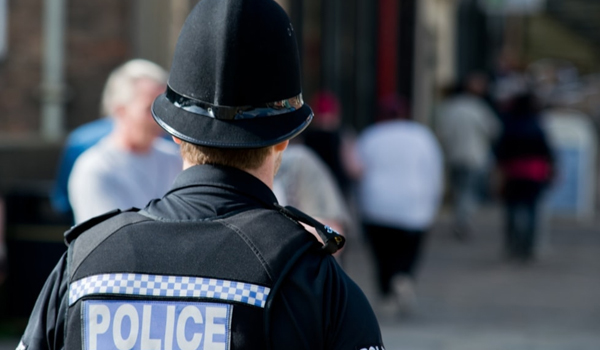Domestic response to terrorist attacks in Israel one of the ‘most resource intensive policing operations in recent history”, says NPCC.
An operation launched in the wake of last year’s terrorist attacks in Israel is now one of the “longest and most resource intensive policing operations in recent history”, says the National Police Chiefs’ Council (NPCC).
Operation Tarlac was a coordinated policing response to address the potential impact on British communities following the Hamas-led attacks on October 7, 2023.
Launched by the NPCC on October 9, 2023, in collaboration with the National Police Coordination Centre (NPoCC), the initiative was designed to enhance support for local policing efforts, deliver consistencies in policing response and align with existing counter-terrorism frameworks to ensure public safety and community cohesion.
“Once the severity of the initial attacks became clear, it was evident that their impact would be deeply felt within communities across the UK,” the NPCC said.
“Previous incidents of escalated tension in the region, notably in 2014 and 2021, demonstrated how such conflicts directly affect the community fear and confidence.
“The response from communities at home has been well documented, and we saw protest activity take place almost immediately following the initial attacks.
“London saw the bulk of this activity, but at its peak, police forces across the country (and not even including London) responded to 67 protests across a four-day period in early November, demonstrating how impactful these events were.”
To date more than 2,600 protest events have required varying police involvement, said the NPCC.
“This has often required the diversion of resources from other priority business and requiring tens of thousands of rest days cancelled,” it added. “This has contributed to Operation Tarlac being one of the longest and most resource intensive policing operations in recent history.”
Over the past year, most of this protest activity has continued to take place peacefully and without issue, but where incidents of criminality occur, the NPCC said officers have been on hand to “respond swiftly and gather evidence to support prosecutions”.
Since the NPCC began tracking data nationally, there have been more than 550 arrests made by police at protests. This include arrests at assemblies, processions, direct action and post-event protest arrest when someone has been identified through inquiries and investigations.
“Policing’s focus has been on supporting our communities by being highly visible, engaging and responding quickly to crime and disorder,” said the NPCC.
“Despite evidenced increased engagement specifically within Muslim and Jewish communities we have seen continued heightened incidents of hate crime reporting.
“We continue to work closely with community partners and government departments to ensure the most effective reassurance is taking place because we know we have work to do to create the confidence to report incidents and feel safe in their community.
“We have been clear throughout this conflict that as emotive as it can be, there is absolutely no excuse for anybody to use it to engage in criminality. Hate crime has not been tolerated. Committing offences during protests has not been tolerated. We have made arrests and are well prepared to continue to do so.”
Chief Constable Chris Noble, NPCC strategic lead for Operation Tarlac, and the national lead for policing protests, said: “The tragic events of October 2023 and beyond continue to resonate with our communities, and our thoughts remain with those who were affected by that incident, in addition to events that have occurred in the region since.
“Over the past 12 months, our officers have responded to an increase in protest activity seen in response to events overseas, often under significant scrutiny.
“In February, the Home Affairs Select Committee acknowledged the complexities involved in policing protests, particularly in balancing the rights of all parties.
“The recent protests have presented the most sustained period of pressure and coordination on policing since 2012. Our officers and staff have demonstrated exceptional commitment and professionalism in responding to these challenges, and their efforts deserve our gratitude and recognition.
“We recognise that events in the Middle East continue to evolve, that a further escalation in conflict is possible, and that this will raise concerns further in our communities at home, particularly those who have friends and family in the region.
“People wish to have their voices heard, and the right to lawful protest is a key part of any democracy, which UK police uphold and facilitate.
“We continue to ask that those looking to organise any future events contact their local police force and engage with them ahead of the time, to ensure that any activity that takes place does so peacefully and lawfully, to the benefit of all in attendance.”


